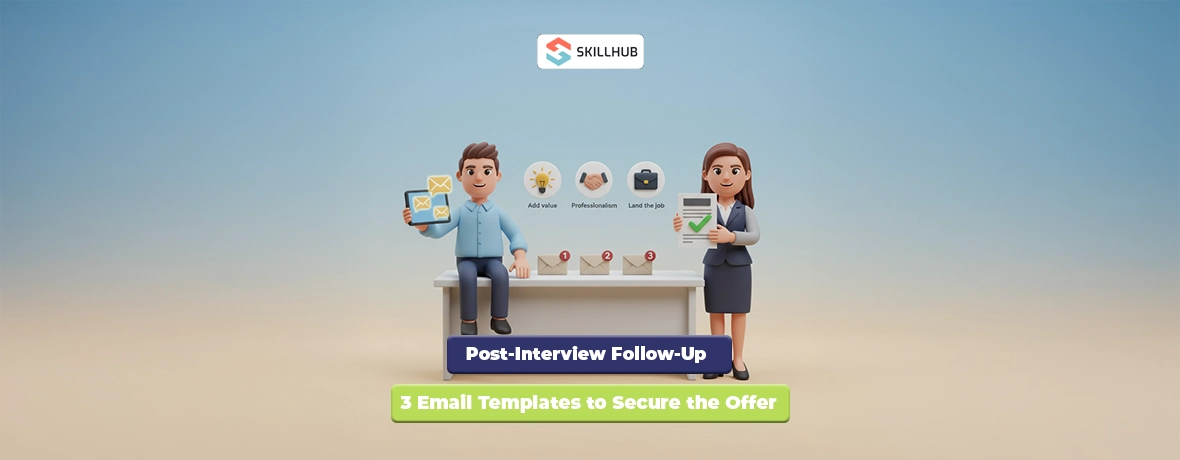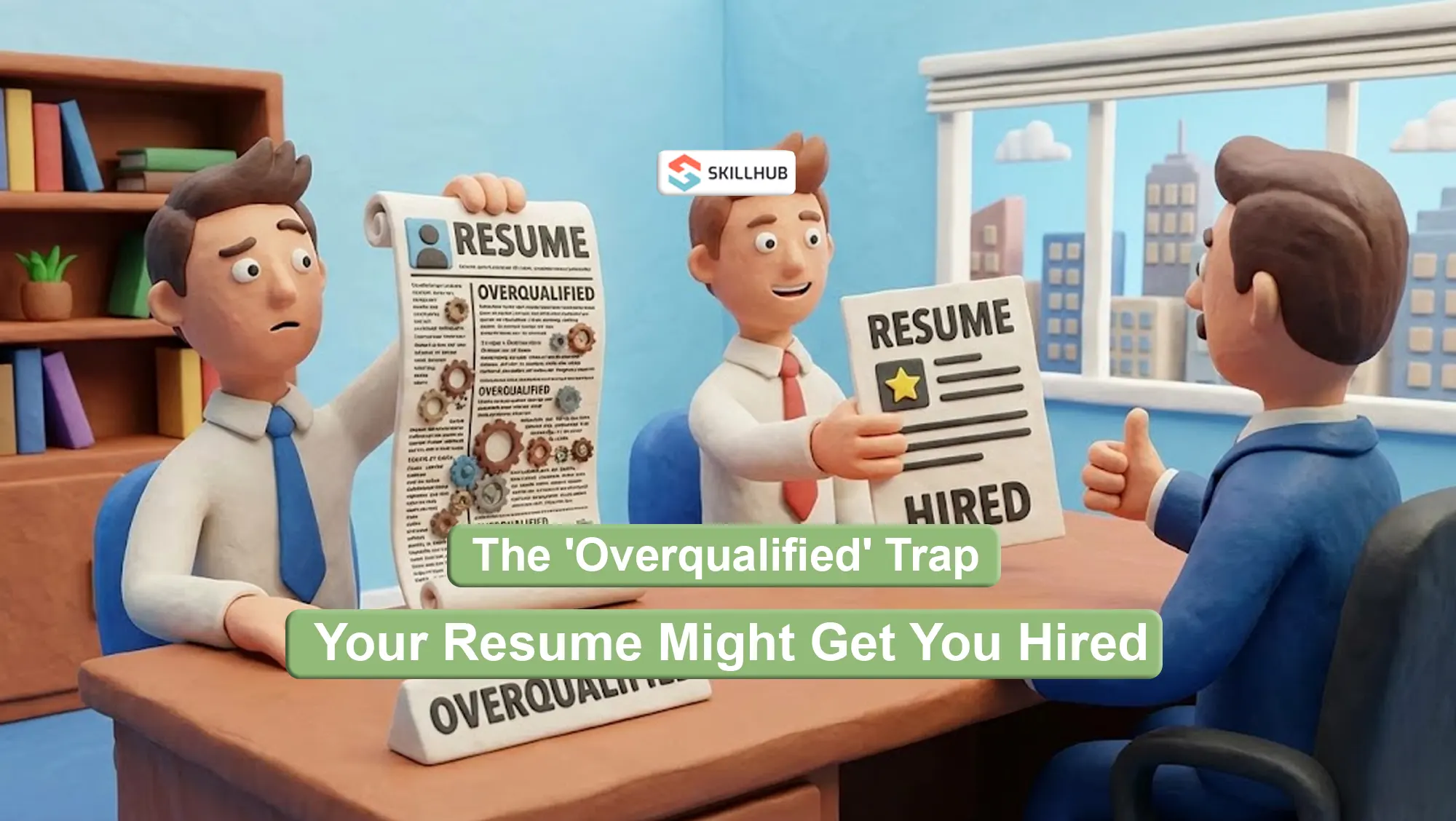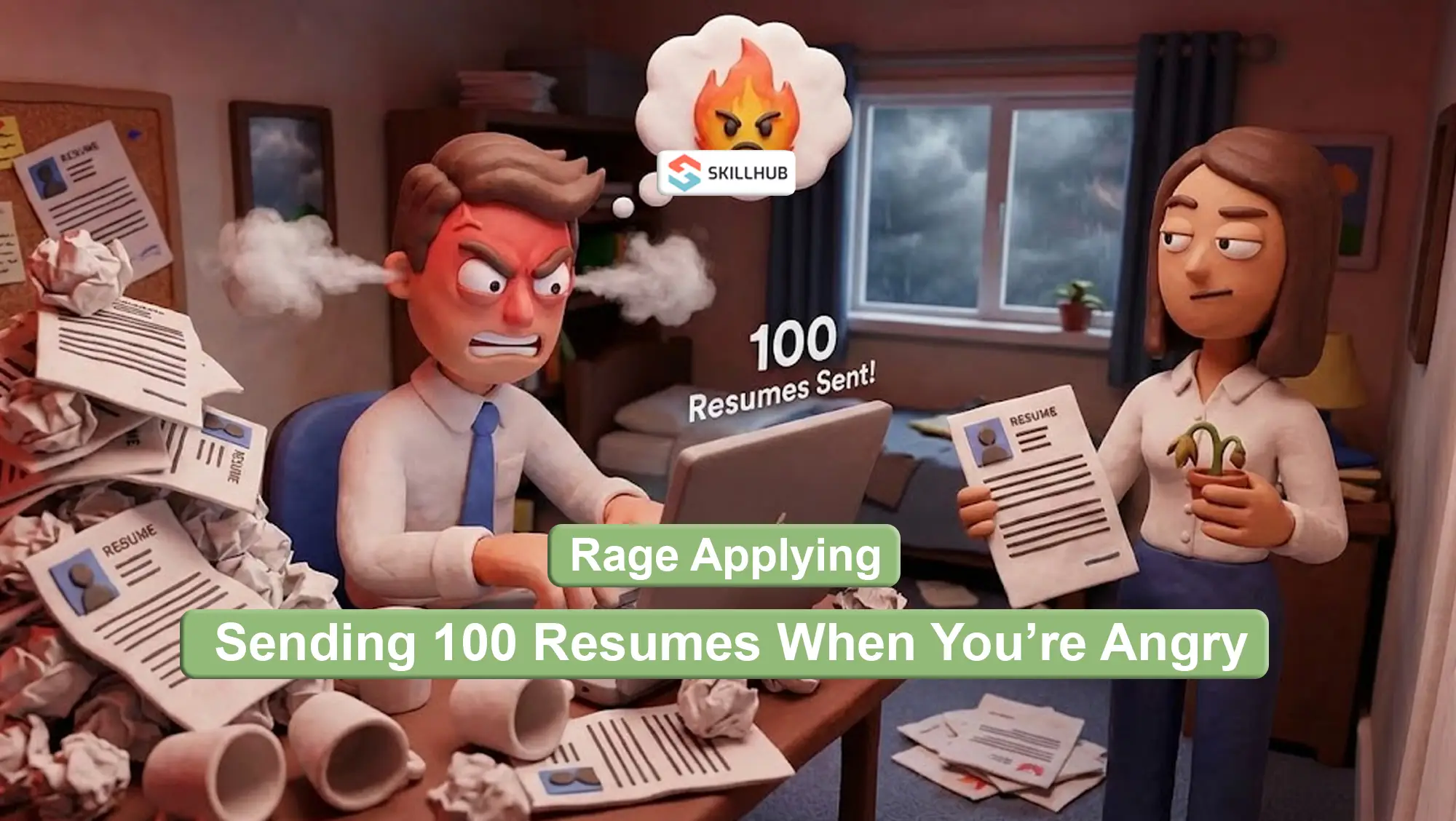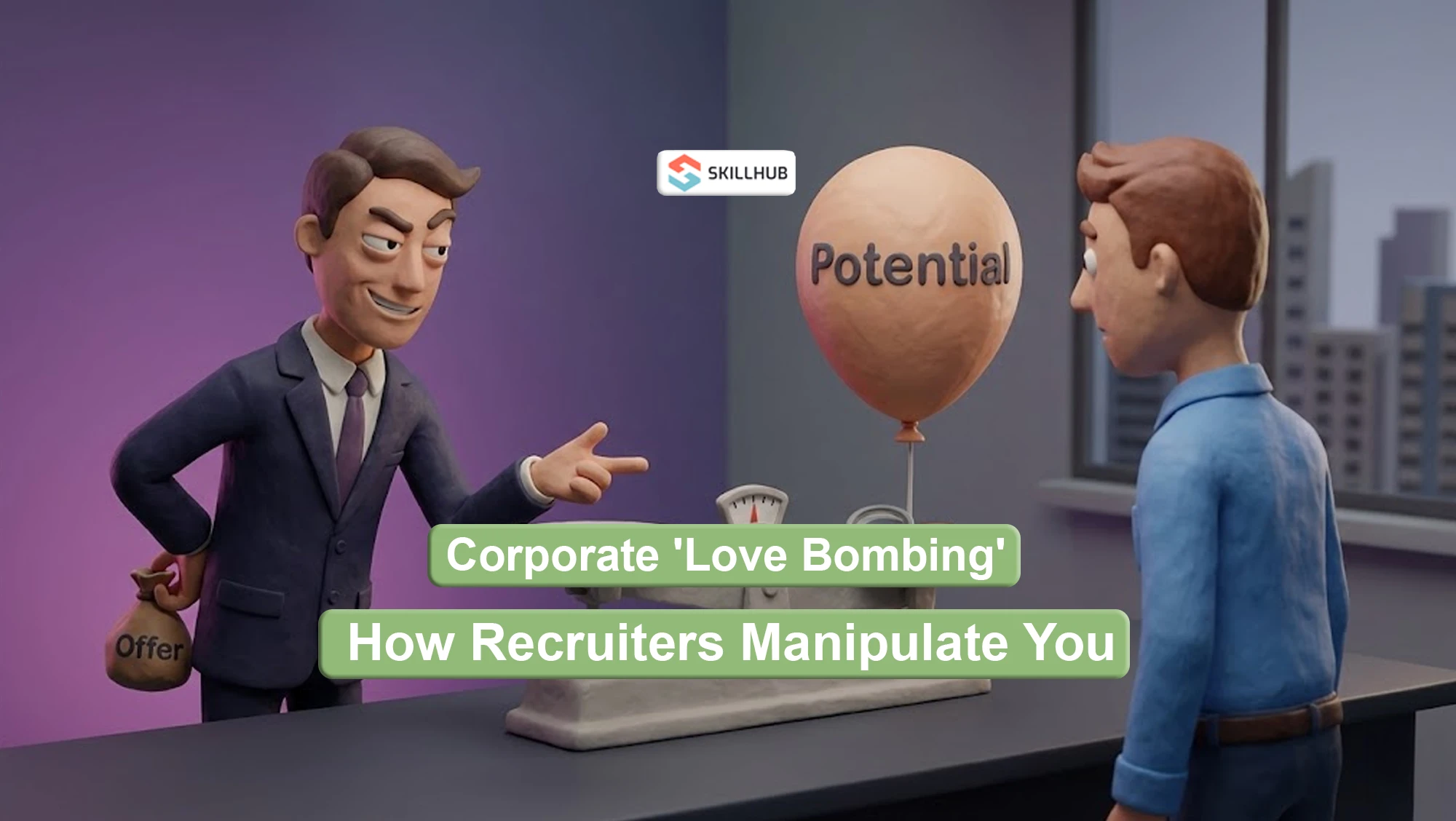The Post-Interview Follow-Up: 3 Template Strategies That Land the Offer

The interview is over. You believe you performed well, answered the tough questions, and established a strong rapport. For the vast majority of candidates, this is where the proactive work stops. They retreat into a state of passive, anxious waiting, assuming the decision is now entirely out of their hands. This is a strategic error of significant magnitude. The post-interview follow-up is not a mere courtesy or an outdated formality; it is the final, critical phase of your performance, a strategic communication designed to reinforce your value, demonstrate unwavering professionalism, and keep you top-of-mind during the chaotic final decision-making process.
A well-crafted follow-up email can solidify a positive impression or even salvage a mediocre one. Conversely, a generic, sloppy, or non-existent follow-up can subtly undermine an otherwise stellar interview, raising silent questions about your attention to detail and genuine interest in the role. The stakes are far higher than most professionals realize. This guide moves beyond the simple advice of "send a thank you note" to provide three distinct, word-for-word template strategies, each designed for a specific post-interview scenario, ensuring you close the loop with tactical precision.
The Core Psychology: Why the Follow-Up Is a Non-Negotiable Strategic Tool
Before deploying the templates, it is crucial to understand the profound psychological impact of a masterful follow-up. It is far more than just a simple thank you letter; it is a tool designed to leverage cognitive biases in your favor.
- Combating the Recency Effect: Hiring managers often interview numerous candidates over several days. The Recency Effect is a cognitive bias where people best remember the last things they heard. A thoughtful, personalized email sent within 24 hours of your interview ensures that your conversation is the most recent, vivid, and memorable one when they sit down to make their final decision. You are, in effect, giving yourself the final word.
- Reinforcing E-E-A-T (Expertise, Authoritativeness, Trustworthiness): The simple act of sending a well-written, error-free follow-up demonstrates that you are organized, professional, and possess strong communication skills all key indicators of a high-value employee. It is a tangible piece of evidence that you are as competent as you claimed to be.
- Continuing the Conversation: A great follow-up isn't just a recap; it's a powerful opportunity to add one final piece of value. Did you discuss a particular industry challenge? Sending a link to a relevant case study shows you are a proactive problem-solver who is already thinking about their business. This transforms you from a candidate into a potential colleague.
The single biggest differentiator between two equally qualified candidates often comes down to perceived interest and professionalism. The follow-up email is your final, tangible piece of evidence for both. A generic template is forgettable. A personalized, value-driven message is a closing argument. It proves you were listening.
Strategy 1: The "Immediate Value-Add" Follow-Up
This is the most critical and universally applicable follow-up. It must be sent within 24 hours of the interview. Its purpose is to thank the interviewer, powerfully reiterate your key qualifications, and add a final, memorable piece of value that sets you apart.
Core Components:
- A Specific, Professional Subject Line: Vague subject lines ("Thank you," "Following Up") get lost in crowded inboxes and signal low effort.
- A Personalized Salutation: Address the interviewer by name, spelled correctly. If you met with multiple people, send a separate, slightly personalized email to each.
- The Expression of Gratitude: A direct and sincere thank you for their time and the insights they shared.
- The Value Reinforcement: This is the most important part of the email. Connect a key point from your conversation to one of your core strengths. Do not simply repeat what's on your resume; frame your experience as the solution to a problem they mentioned.
- The Value-Add (Optional but Highly Recommended): Link to an article, a case study, a portfolio piece, or a resource that is directly relevant to a topic you discussed. This shows initiative.
- A Confident Closing: Reiterate your strong enthusiasm for the role and the company.
Word-for-Word Template (For a Hiring Manager):
Subject: Thank you - Following up on our [Job Title] Interview
Dear [Interviewer's Name],
Thank you again for taking the time to speak with me today about the [Job Title] position. I truly enjoyed learning more about the team's goals for the upcoming quarter and the specific challenges involved in the [mention a specific project or challenge discussed] initiative.
Our conversation further solidified my interest in this opportunity. I was particularly energized by our discussion about [mention a specific topic], and it reminded me of my experience at [Your Previous Company], where I [briefly describe a relevant, quantified achievement]. I am confident that my skills in [Your Key Skill] would allow me to contribute directly to the team's success in that area.
As a follow-up to our conversation about [mention a technical or industry topic], I thought you might find this recent article on [Topic] interesting: [Link to article].
I am very enthusiastic about the possibility of joining your team and am confident I have the skills to excel in this role. Please don't hesitate to reach out if any further questions arise.
Best regards,
[Your Name]
Strategy 2: The "Deeper Insight" or "Damage Control" Follow-Up
The Scenario: You walk out of an interview and immediately think of a better, more insightful answer to a critical question. Or worse, you realize you fumbled a key response. This strategy is your chance to tactfully provide a better answer. This is a high-risk, high-reward maneuver; it must be executed perfectly to avoid sounding insecure or like you're second-guessing yourself.
The Strategy: Frame this as a "further thought" that demonstrates your continued engagement and deep thinking about the company's challenges. It must provide genuine, high-level strategic insight, not just a slightly rephrased version of your original answer.
Word-for-Word Template:
Subject: Further Thought on Our [Topic of Discussion] Conversation
Dear [Interviewer's Name],
Thank you once more for the engaging conversation yesterday. I've been thinking further about our discussion on [mention the specific, complex problem], and another thought came to mind that I wanted to share.
During the interview, we touched upon [briefly recap the issue]. Upon further reflection, a strategy I successfully implemented in a similar situation was to [describe your deeper, more strategic solution concisely]. This approach resulted in a [quantifiable outcome, e.g., 15% reduction in costs], and I believe a similar framework could be highly effective in addressing the challenges you outlined. I wanted to provide this additional context as it's a strong example of how I approach complex problems.
This is simply a further reflection of my genuine interest in the role and the problems your team is solving.
I look forward to hearing about the next steps.
Best regards,
[Your Name]
Strategy 3: The "Polite Check-In" & Second Follow-Up Strategy
The Scenario: The timeline the recruiter gave you ("We'll be in touch by the end of the week") has passed, and you've heard nothing but silence. You need to inquire about the status without appearing impatient, desperate, or accusatory.
The Strategy: The first check-in should be extremely short, professional, and positive. Your goal is to gently remind them of your existence and reiterate your interest. This is a crucial part of the follow-up letter process.
Word-for-Word Template (First Check-In - Send 1-2 Days After Timeline Passes):
Subject: Checking in on the [Job Title] Position
Dear [Hiring Manager's or Recruiter's Name],
I hope you're having a great week.
I'm writing to politely check in on the status of the [Job Title] position, for which I interviewed on [Date of Interview].
I remain very interested in the opportunity and am eager to hear about the next steps in the process when you have a moment.
Thank you for your time and consideration.
Best regards,
[Your Name]
The Second Follow-Up (If still no response after another 5-7 business days):
This email has a different goal. It is designed to create urgency and professionally signal that you are moving on. You are not begging; you are closing the loop.
Word-for-Word Template (Second Check-In):
Subject: Following Up on the [Job Title] Role
Dear [Hiring Manager's Name],
I hope this note finds you well.
As I haven't heard back regarding the [Job Title] position, I'll assume that you have decided to move forward with other candidates. I want to thank you again for the opportunity to interview with your team.
I wish you and [Company Name] all the best in finding the right person for the role. Please keep me in mind for any future opportunities that may be a good fit.
Best regards,
[Your Name]
The Expertise Barrier: The Art of Tone and Timing
The success of these templates depends entirely on execution. An email can be perceived as confident or arrogant, enthusiastic or desperate, professional or sycophantic. This is where many candidates fail. They write a follow-up that is grammatically correct but emotionally tone-deaf, inadvertently damaging their candidacy at the final hurdle. Writing a perfect follow-up is as much of an art as acing the initial interview questions.
Can you be certain that your follow-up email strikes the perfect balance of confidence, professionalism, and genuine enthusiasm? For those seeking to ensure every communication touchpoint is flawless, professional guidance can be invaluable.
Conclusion: The Final Move
The post-interview follow-up is your last strategic move in a complex game. It is a reflection of your professionalism and a final piece of evidence for the hiring manager to consider. By moving beyond a simple "thank you" and deploying a thoughtful, value-driven communication strategy, you significantly increase your chances of turning a great interview into a firm offer.
Ready to ensure every stage of your job search is executed with expert precision? Consult with a Skillhub Career Expert today.
%20(1).png)



%20(1).webp)